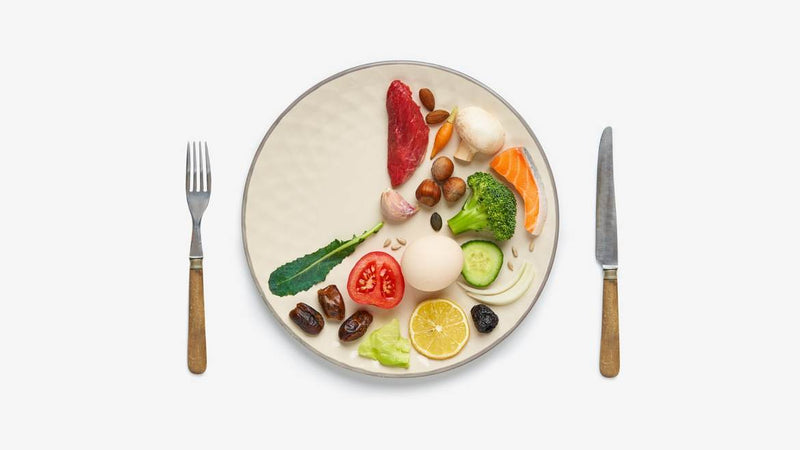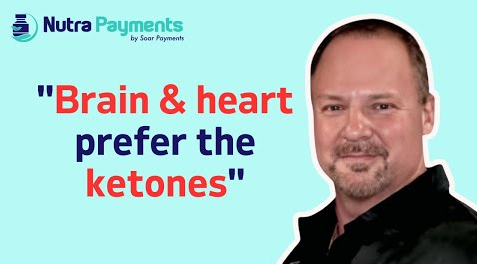Intermittent Fasting Made Simple
Need To Know Cheat Sheet:
● Intermittent Fasting (IF) is when you purposely eat for a set window of time each day that has a dedicated start and stop period. After this window, you cease eating for the rest of the day.
● The period where you don’t have food is known as the fasting period. We want to maximize these timeframes. The period where you do have food is the feeding period. We want to consolidate these.
● Intermittent fasting can help with fat loss, inflammation loss (control bloating), longevity, disease prevention, health optimization, blood sugar control, focus & brain health, energy, mood, and more.
● There are many forms of intermittent fasting-the most popular being the 16/8 (men) or 14/10 setups (women). The first number refers to the fasting period, and the second refers to the feeding period.
● A common approach is to skip breakfast and start your eating at lunchtime, continuing until dinner. For example, roughly 12-8 PM. This is a guideline and not ultra-rigid, however. We recommend not extending this window for most, especially early on. Longer extensions are typically done on rarer occasions.
● We recommend eating 2-3 larger, square meals-or 2 meals and a snack.
● During the fasting window, minimal calories are recommended. Items like water, sparkling water, natural gum, coffee, tea, electrolytes, and exogenous ketones are popular choices.
This guide helps outline a basic, foolproof set up to help you get started with an optimal intermittent fasting program. You can also use this guide to simply introduce intermittent fasting into your current lifestyle.
Intermittent fasting is an effective fasting style with many benefits, including fat loss, improved brain & neurological function, mood elevation, and decreased inflammation. It has become a popular message for optimizing health and fitness while providing a ton of lifestyle freedom. The best method for results and sustainability is the16/8 fasting style.
What IS Intermittent Fasting?
Intermittent Fasting (IF) is also known as time-restricted feeding and essentially means that you consolidate your food intake over a certain block of hours in the day and fast outside of that window. These are referred to as feeding windows and fasting windows.
The best, easiest to set up, and most sustainable type of fasting is known as the 16/8 method. This refers to the fact that you fast for about 16 hours of the day and eat for roughly the other 8.
Don't worry - it's even easier than you think. For most people, this just means you skip breakfast and you eat lunch and dinner, possibly with a snack in between. Your next meal would then be lunch the following day.
Remember that this is just one approach and you can move the fasting and feeding around, as well as adjust the hours.
How It Works
Intermittent fasting essentially means that your body won't have food in it as frequently, which is more aligned with how we evolved (were meant to operate), to the best of our knowledge.
Intermittent fasting promotes autophagy, which is the cellular pruning process of the body. All this means is that weaker cells are trimmed off and replaced by healthier, fresher cells. This is one of your number 1 defense against diseases and health issues. This also extends to the brain and neurological health, as well.
Health Benefits
Although it can seem like a big change in your life, health, fitness, and freedom benefits are well worth it. Believe it or not, your body actually adjusts fairly quickly.
Fat loss
Intermittent fasting can help your body train itself to run off of its own fat for fuel, much like how most people try the ketogenic diet for the same reason. not having food in your system as often means your body will run off of its own fat for fuel.
Longevity
The impact of autophagy as well as the other positive effects on blood sugar, inflammation, and metabolism, all support longer, healthier lifespans.
Brain Health & Performance
If can improve brain function and help get rid of brain fog. That process is known as autophagy also includes nerve cells.
Decreased Inflammation
IF helps prevent some of the deleterious effects of cellular over feedings or the consequences of eating too much and too often. It also helps silence insults from your food, habits, and environment known as chronic inflammation.
Blood Sugar Balance
Intermittent fasting also helps with blood sugar balance because you are able to step away from having food all of the time and get off of the blood sugar roller coaster. Intermittent fasting also improves something called insulin sensitivity or the little receptors that determine how your body deals with carbs. improvements here mean improvements in storing carbs as muscle and organ fuel instead of as fat.
Metabolic Management
Intermittent fasting improves the various highways of your metabolism and how it coordinates itself on the whole.
Lower Blood Pressure
Intermittent fasting can actually help reduce blood pressure.
Hormonal Health
Intermittent fasting may also support healthy expressions of certain hormones in the body, as well.
How To IF
There are a few simple steps you need to know when setting up a successful intermittent fasting method into your life.
Continue to eat healthy foods: Intermittent fasting is not an excuse to eat whatever you want just because you have healthier meal timing. A bad diet is always a bad diet and can offset many of the benefits of intermittent fasting. If you're having trouble identifying what foods you should eat, please refer to our grocery list guides.
Eat in the proper proportions: You can do intermittent fasting without being on a ketogenic diet. You can eat fewer carbohydrates, plenty of vegetables, a moderate amount of protein, and more healthy fat on days in which you are resting or doing steady-paced cardio activity. You can potentially have higher amounts of carbohydrates a couple of days per week in a refeed format or also have moderate amounts of carbohydrates closer to your workouts on days in which you exercise a little more rigorously. The idea here is that you get to sit down and eat more substantial, satisfying meals. This gives you a ton of freedom from having to eat small meals every few hours.
Pick your schedule: Choose which hours you will be fasting and feeding. Think about your schedule when you do this. More often than not, meals later in the day will be had with friends and family. it's probably easier to skip breakfast for most people and also capitalize on some of the energy and brain health benefits for productivity earlier in the day. The easiest approach is to skip breakfast in the morning and eat lunch and dinner right around the usual times. For example, you could choose to eat from noon until 8 PM. You don't have to be bulletproof with this, either.
IF & Ketosis
Intermittent fasting and ketosis are related for a few different reasons. Intermittent fasting actually helps you transition to and stay in ketosis.
In fact, the ketogenic diet was originally invented to mimic the effects of fasting on the body.
Remember that for you to get into ketosis, you're either doing it by fasting and/or by fasting from carbohydrates to an extent. Both of these things done long enough will introduce ketones in your system and also fat-adaptation, which means you will be burning fat for fuel. Cool beans!
Intermittent fasting actually helps you decrease your levels of glucose at a speedy rate, which accelerates your body's ability to run off of its own fat.
Intermittent fasting won't necessarily take you all the way into full ketosis on its own, but what it can do is get you part of the way there and more importantly that you burning your own fat for fuel.
How To Combine Intermittent Fasting and Ketosis
Sure you can eat in the intermittent fasting window and eat whatever you want but that's not the point. The synergistic effect gives us what we all want - health, fitness, and freedom, baby!
As we mentioned before, we still recommend generally eating lower carbohydrates, increasing your levels of protein, and increasing your amounts of healthy fat. Be sure to eat plenty of vegetables as well. This just changes when you might eat them.
More flexibility: intermittent fasting combined with eating similar to a ketogenic diet means you don't have to go as strict as you would have otherwise on ketosis the still get the benefits. This is also greatly helped by combining this way of eating with supplementing exogenous ketones. This way you can still get the benefits of ketones in your system while having much more freedom and flexibility in your life.
I can't get any satisfaction! Most diets make you feel like you have a much more restricted life and are always hungry. With IF, it's the opposite. You don't feel like your life revolves around your diet schedule but more so like your diet fits into your life. You get to sit down and eat larger, more satisfying meals without cravings in between and you free up much more room for productivity and fun in your life!
Concerns
Many people are concerned about skipping breakfast because they have heard it's the most important meal of the day. While some people and health situations still should definitely include breakfast, this is largely overblown. Most of the research siding breakfast is the most important meal of the day was actually paid for by breakfast cereal companies.
However, there's nothing inherently wrong with breakfast either. You could skip another meal and get similar results.
An example of a situation that might warrant breakfast would be certain thyroid conditions.
But what about being hangry, you ask? Not to worry. There's a hunger hormone called ghrelin that ticks and every time you eat something. When you adjust the times where you eat on a regular basis, your body gets used to these new times as well.
Bottom Line
Intermittent fasting is both a safe and effective method for improving your health and fitness. Below are the takeaways:
● Intermittent fasting has many research backed benefits, including better metabolic Health, better brain function, healthier blood sugar levels, decreased inflammation, longevity support, and body fat loss.
● The 16/8 intermittent fasting method means you fast for 16 hours and you eat for 8 hours.
● Fasting can support general health and is used to fight diseases via autophagy, the out with the old, in with the new pruning process of the body.
● Fasting can help you get into ketosis and stay in ketosis.
● The best method for getting results and successfully keeping them is to follow a hybrid combination of intermittent fasting, a modified ketogenic diet, and exogenous ketones.
Intermittent Fasting Made Simple


 ACCOUNT
ACCOUNT
 CART
CART




